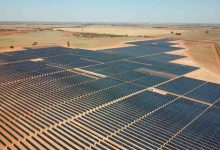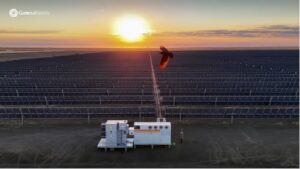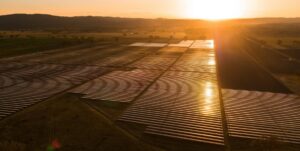PRESS RELEASE
Melbourne, 3 December 2018: Northern Victoria’s largest solar energy installation is now complete and achieving 100 per cent generation to the grid.
The project, named Karadoc, became Australia’s fastest semi-scheduled solar farm to begin contributing power to the grid when it was first energised in mid-October.
Now at full power, Karadoc’s 330,000 photovoltaic cells, covering an area of 640 acres, are generating enough power to supply 65,000 Australian homes.
The project was delivered in just 10 months by global renewable energy developer, service provider and wholesaler, BayWa r.e. and its construction partner Beon Energy Solutions. The highly efficient installation was thanks to the team’s meticulous planning, global logistics experience and grid connection strategy.
Daniel Gäfke, Managing Director of BayWa r.e. Solar Pte Ltd. said: “To have reached 100 per cent generation on this project within a year is a great achievement. The projects energisation is a milestone event for renewable energy generation in Northern Victoria.
“Following the signing of a 12-year PPA with major Australian brewer, Carlton & United Breweries, the Karadoc solar farm is a great example of how companies can partner with BayWa r.e. to benefit from green energy while also helping Australia’s transition to renewable energy.”
Committed to supporting the local community throughout, Beon’s project team worked together with Sunraysia Institute of Technology and Further Education (SuniTAFE) to develop an industry first-solar traineeship on site and provided new apprentices and also partnered with the Jobs Victoria Employment Network (JVEN) the project created multiple jobs for people who may have previously faced barriers in joining the workforce.
Beon’s General Manager Glen Thomson commented “Our partnering approach with regional employment groups, coupled with the on-going support of BayWa r.e., allowed the project to be delivered in an efficient manner with significant benefits to the Mildura region. It has been an incredible effort by all those involved in delivering the Karadoc project. More than 700 people have worked at the site during the year, including 27 local trainees and apprentices.”









